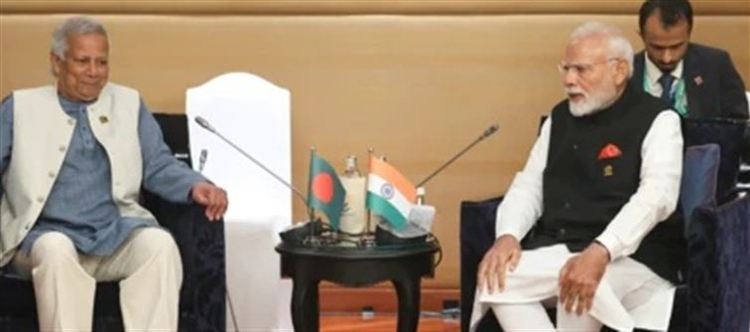
It followed the growing 'anti-India stance' of the interim government led by Muhammad Yunus. However, according to the Foreign Ministry, the license granted to Dhaka was revoked since it started to seriously impair operations at indian ports and airports. Bangladeshi garment exporters are among the most severely impacted by the removal of the transshipment facility; they had been under a great deal of strain because of the demand from around the world.
"Mainly, completed, branded, ready-made clothing was flying into india from delhi and mumbai airports for shipment to europe and the US. For high-value cargo, Bangladeshi exporters used air freight to guarantee quicker delivery to customers. Congestion frequently causes delays for traditional marine freight, PCASWA secretary Kartik Chakraborty said news agency PTI. Official data shows that between the fiscal years 2023–24 and 2024–25, transshipment cargo from bangladesh for re-export through india increased by 46% at the Petrapole Land Port in the North 24 Parganas district of West Bengal. Retaliation against the growing "anti-India stance" of the interim government led by Muhammad Yunus is what New delhi is doing.
During his recent four-day visit to China, Yunuus made comments that caused a significant diplomatic backlash when he called the Northeast of india a "landlocked" region that depends on Dhaka for access to the ocean. External Affairs minister S jaishankar sharply rebutted Yunus, pointing out the importance of India's 6,500-kilometer coastline and its geographic connections to five members of the Bay of bengal Initiative for Multi-Sectoral Technical and Economic Cooperation (BIMSTEC).
India offers a large portion of the interface between the indian subcontinent and ASEAN, in addition to sharing borders with five BIMSTEC members and connecting the majority of them. With its extensive network of roads, railroads, canals, grids, and pipelines, our North-Eastern area in particular is becoming a connectivity hub for the BIMSTEC, jaishankar said in a release.
India is one of Bangladesh's top 15 FDI sources. With a US$ $8 billion development portfolio, india is Bangladesh's top development partner and its second-largest commercial partner. Dhaka's growth and survival are mostly dependent on foreign funding. However, as anti-India sentiment grows, trade has decreased as a result of border closures, problems with customs clearance, and heightened security monitoring that make it more difficult for commodities to move freely between the two nations. In addition, public transit has been prohibited since last June, and several initiatives intended to improve communication between the two nations have also been halted. In addition to causing losses for businessmen transporting goods across the border, this has made it difficult for Bangladeshis seeking medical care in India.
Relationships between india and bangladesh, and the pakistan Wildcard. Although Yunus has told the public that "there is no problem in our basic relationship (with India)," his government has shifted responsibility by accusing india on several occasions of causing the domestic unrest in Dhaka. The Yunus government forbade the export of Hilsa to india before the Durga Puja, claiming that there would not be enough for the local populace, thereby violating the Awami League's Hilsa diplomacy, Farida Akhter. Hindu festivities across the border were impacted by this decision, which stoked anti-Indian sentiments in bangladesh and cast doubt on the interim government's dedication to defending the rights of its Hindu communities.




 click and follow Indiaherald WhatsApp channel
click and follow Indiaherald WhatsApp channel